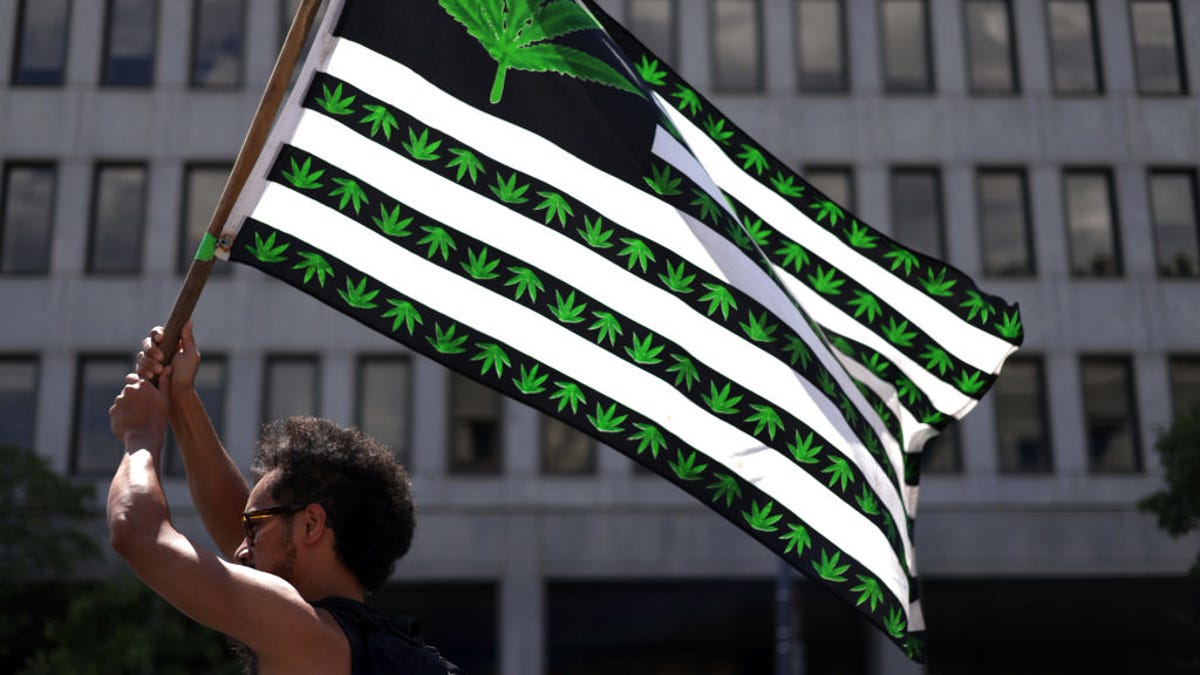Marijuana Legalized in Maryland, Missouri in Midterm Elections
Referendums in Arkansas and North and South Dakota didn't pass.

Recreational marijuana is now legal in 21 states.
Maryland and Missouri both passed referendums legalizing marijuana on Election Day, bringing the total number of states that allow adult-use or recreational cannabis to 21. Similar initiatives in Arkansas and North and South Dakota, however, were rejected by voters.
In Maryland, Question 4 was overwhelmingly approved, 65.5% to 34.5%, according to figures provided by The New York Times.
The measure legalizes the purchase and possession of up to 1.5 ounces of cannabis, along with the cultivation of up to two plants for personal use. Convictions for possession of up to 2.5 ounces would be automatically expunged, while individuals convicted of possession with intent to distribute can petition to have their records cleared.
Retail sales will likely start in 2024 or 2025, after state lawmakers address taxation and regulation.
Ben Kovler is chair of Green Thumb Industries, which operates Rise dispensaries in 13 states including Maryland. He applauded voters for legalizing recreational cannabis and supporting reforms that would remove convictions for marijuana-related offenses.
"As another domino falls on the East Coast, we're pleased to see Question 4 pass in Maryland with overwhelming support," Kolver said in a statement shared with CNET. "As witnessed in this election, more and more Americans are choosing cannabis for well-being and we look forward to serving more consumers in the state."
According to a 2021 Pew Research poll, 91% of Americans believe cannabis should be legalized to some degree.
In October, President Joe Biden pardoned all federal marijuana possession convictions and encouraged governors to do the same. "Just as no one should be in a federal prison solely due to the possession of marijuana, no one should be in a local jail or state prison for that reason, either," Biden said in a statement.
Missouri voters passed Amendment 3 by a margin of 53.1% to 46.9%. It amends the Missouri Constitution to legalize marijuana use by adults age 21 and older and expunges arrests and convictions of most nonviolent marijuana offenses.
Revenue from a 6% sales tax on recreational cannabis will go toward substance treatment programs, veterans' health care and the state's public defender system.
Legal Missouri 2022 gathered more than 390,000 signatures to get the amendment on the ballot.
The overwhelming victory in a state that went Republican in the 2020 presidential election "shows that this is not a partisan issue," Legal Missouri 2022 campaign manager John Payne told the Associated Press. "This is something that transcends partisan divides."
Analysts believe legal marijuana in Missouri will generate tax revenues of at least $40 million a year.
Arkansans, meanwhile, rejected Issue 4 (pdf) by a measure of 56.2% to 42.8%. Unlike Maryland and Missouri's measures, it did not include any provisions for expunging marijuana convictions.
Sarah Huckabee Sanders, who won the Arkansas governor race on Tuesday, was among the politicians opposing Issue 4.
"I don't think that with the drug epidemic that we have across this state, frankly across the country, that adding and giving more access to that does anything to benefit Arkansas," she told reporters in October.
North Dakota's Measure 2 was also defeated, 54.9% to 45.1%. In South Dakota, Measure 27, which would have allowed adults to purchase up to an ounce of cannabis, failed 53% to 47%, according to the South Dakota Secretary of State website.
South Dakota originally voted to legalize marijuana possession in 2020, but that law was struck down by the state Supreme Court following a legal challenge by Republican Gov. Kristi Noem.
A referendum in Oklahoma garnered enough signatures but wasn't verified by election officials in time to make it onto the November ballot. It will be the subject of a special election in March 2023.

